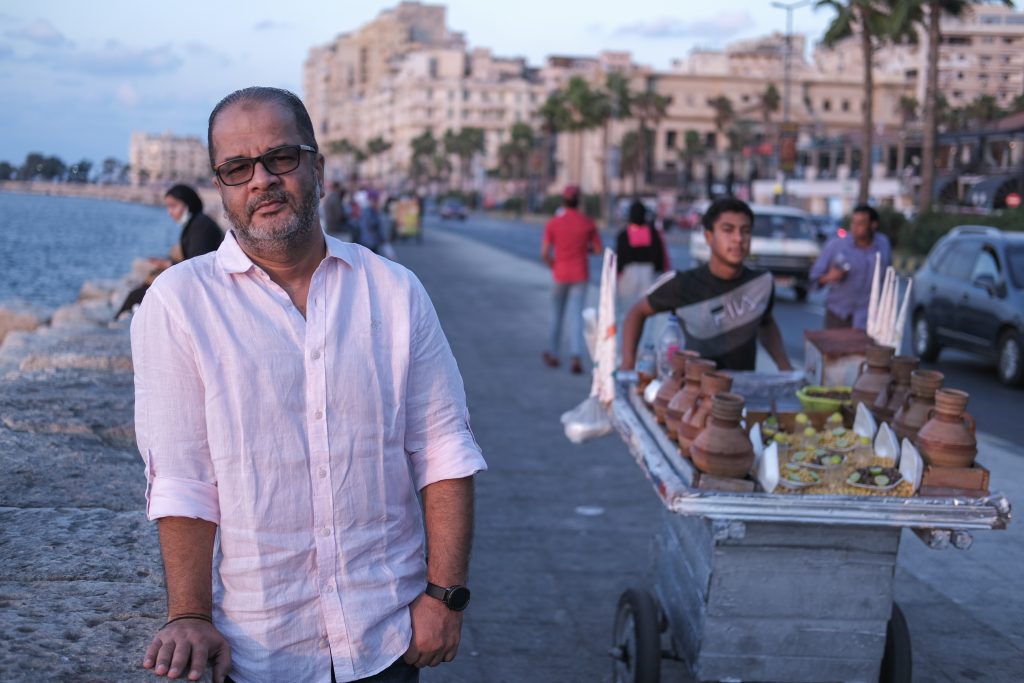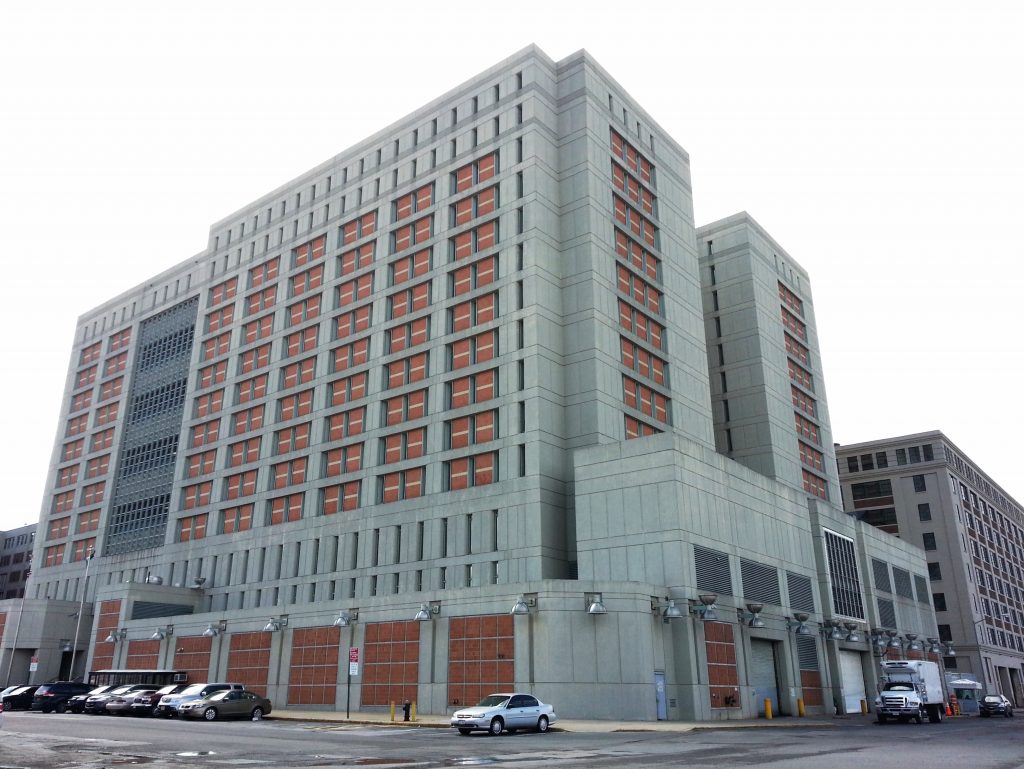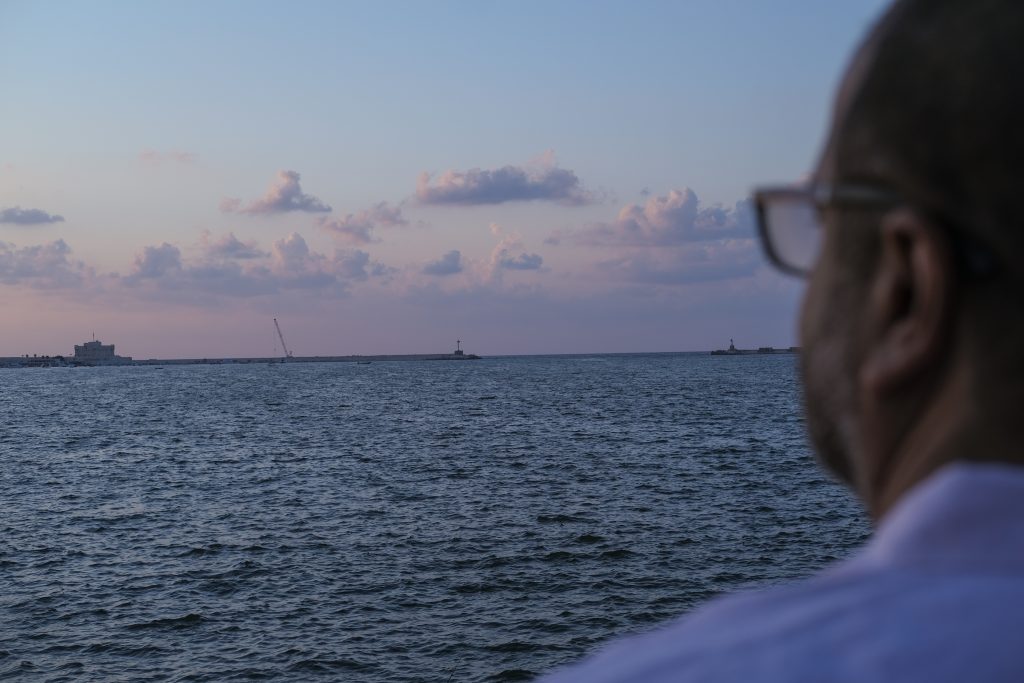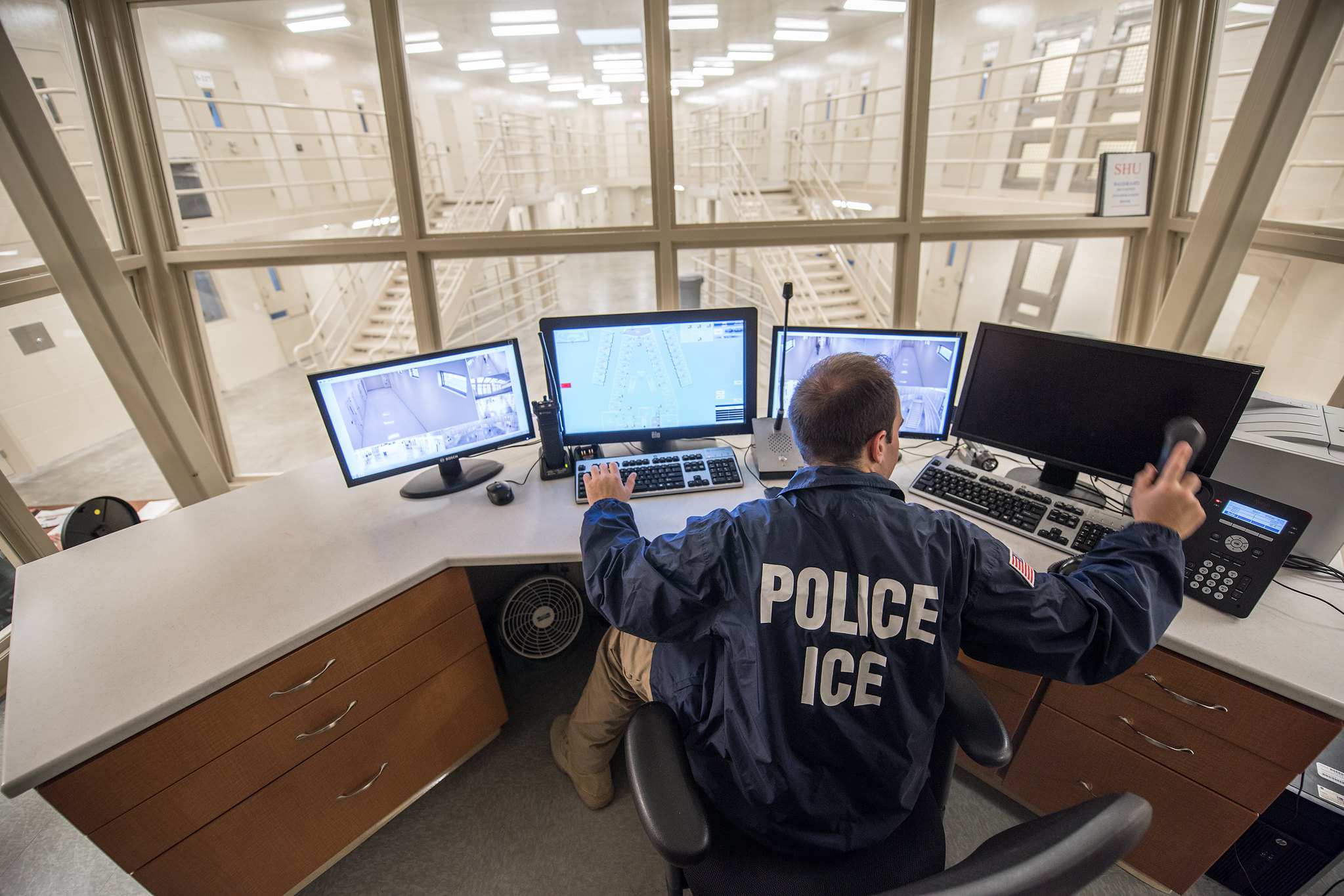Their nightmare began on a cool autumn afternoon on September 30th, 2001.
Yasser Ebrahim, a 29-year-old gregarious undocumented immigrant from Alexandria, Egypt, and his younger 25-year-old brother Hany, were relaxing in their Ocean Parkway apartment in Brooklyn, when they heard a heavy pounding at their door. Not expecting any company, Yasser cautiously opened the door. Before him were nearly two dozen law enforcement officials from several different agencies such as the FBI, NYPD, and INS.
Not accustomed to interacting with cops, Yasser was shocked at the sight of so many of them at once. Feeling he had no other choice, he invited them in. Immediately they questioned him and his brother regarding their immigration status and terrorism, including asking if they had any involvement in the 9/11 attacks just a few weeks earlier.
The brothers answered all of their questions and told them they had no connection to terrorist activities. At that point in their lives, Yasser and his brother were not even particularly religious. Far from it; their fridge was regularly stocked with cold beer. Confident that they had nothing to hide, Yasser tried to remain calm. After all, he thought, they were in America.
“I thought they would only ask a few questions and leave but still I was terrified,” he said. “I didn’t have much experience with law enforcement, not even in Egypt. It was scary, but deep inside you knew this was America and not some third-world country where you could be arrested for nothing.”
During the impromptu integration, some of the officers were cordial and empathetic but others were aggressive. Not satisfied with the brother’s answers, the officers proceeded to handcuff them as well as one of their roommates. Without consent, they ransacked their apartment and seized their personal property. At no point did any of the officers read them their rights nor were they allowed to contact a lawyer, Yasser explained. The brothers were led to believe that they were arrested solely for their immigration status and it would be all sorted out in a few days, Yasser recalled. He could never have imagined that his life as he knew it had ended.
“And that was it, we couldn’t say anything,” says Yasser. “We asked to call our family, call a lawyer or call anybody, and they told us no and that they will take us to the immigration office and everything will be sorted in one day. Turns out eight months later that was not the case.”
In the aftermath of the 9/11 attacks, another tragedy began to unfold. In a misguided attempt by authorities to bring the perpetrators of the attacks to justice, across the country, 762 innocent Muslim, Middle Eastern, and South Asian undocumented immigrant men, including 491 in the New York City metropolitan area alone, like Yasser and his brother, were dragged out of their homes by federal authorities and sent to detention centers and federal jails on trumped-up immigration charges. Families and communities were ripped apart and lives were uprooted. Nearly 20 years later, the victims have yet to receive justice and New York’s various Muslim communities are still left reeling.
Yasser and his brother were held at the notorious Metropolitan Detention Center (MDC) in Brooklyn. According to the lawsuit, most of the men were held indefinitely for nearly a year without any contact with a lawyer, family, or the outside world, according to court documents and Yasser.
“We just disappeared,” says Yasser. “We had no connections to the outside world. No connection whatsoever. We just vanished.”
A Coordinated Effort
While imprisoned, many of the men, including Yasser and his brother, were confined to tiny cells for over 23 hours a day, routine strip searches, religious persecution, as well as physical and verbal abuse. Much of the abuse grimly foreshadowed the systematic torture of the prisoners in Abu Ghraib during the Iraq War just two years later. A detailed investigation by the Center of Constitutional Rights found that the arrests were a coordinated effort by the Bush administration’s then-Attorney General John Ashcroft and then-FBI Director Robert Mueller. Together they launched a national 9/11 tip-line that encouraged Americans to report on their fellow neighbors if they suspected terrorist activity.
The FBI thoroughly investigated the thousands of tips that flooded the hotline, many of which were based on nothing more than discriminatory suspicion against Muslim neighbors or the perception that they were Muslim. One of the victims, Ibrahim Turkmen was arrested and imprisoned for months in Passaic County Jail in New Jersey and deported after his landlord called the FBI on him and his roommates. The landlord claimed that Turkmen was a model tenant but would feel awful if she found out that he and his roommates were involved with terrorism. Turkmen and his roommates were cleared of all wrongdoing.
In 2002, the Center of Constitutional Rights filed Turkmen v. Ashcroft, a class-action lawsuit on behalf of all the men who were wrongfully imprisoned and deported. The case attempted to hold liable former Attorney General John Ashcroft, former FBI director Robert Mueller, and the former commissioner of the Immigration and Naturalization Service (INS) James Ziglar, as well as the former warden and other Metropolitan Detention Center officials who oversaw the abuse.
“Basically the case challenges the disappearances that were happening after 9/11,” said CCR Senior Staff Attorney Rachel Meeropol. “Muslim, Arab, and South Asian men have been swept off the streets of New York and New Jersey mostly although the roundup took place all across the country. While the roundups occurred in complete secrecy initially, we later learned that they were part of a policy developed out of the highest level of government.”
The case, which has been led by Meeropol, has languished in the courts for nearly 20 years. This is in part because there is currently no legal statute that allows people to sue federal officials for compensation regarding constitutional violations. Nevertheless, Meeropol believes that the victims have enough just cause to set a legal precedent.

“The officials were violating clearly established constitutional rights and they should be held personally responsible and be required to pay damages to those who were injured because of the policy they put in place.”
When they arrived at the Metropolitan Detention Center, Yasser and his brother were quickly separated from one another. Yasser was placed in an immigration unit and Hany was placed in the general population. In November, they were able to see an immigration judge and were given a deportation order. They were told that they would be deported in two weeks. The brothers were relieved. At that point, they just wanted to be free.
“We already spent almost two weeks in the hell hole and we wanted to get out,” says Yasser. “If they are going to put handcuffs on me and shackle me all the way to Egypt, I’ll be very happy to do so just let me out of America.”
Yet, two weeks came and went without them hearing a word. Six months would go by and they did not hear a word about their status. They were not allowed to contact a lawyer, their family, or the Egyptian embassy. The brothers would remain separated the entire time. At some point, Hany got word from the other inmates that deportations took place every Wednesday. So every week he would eagerly look forward to Wednesday only to be disappointed.
On the outside, organizers like a young Fahd Ahmed, co-founder and now Executive Director of DRUM – Desis Rising Up and Moving, a South Asian and Indo-Caribbean immigrant-led community organization based in Queens, were just beginning to learn about the extent of this emerging crisis. DRUM, only a year old in 2001, was already organizing detainees at immigration facilities like Passaic County Jail in New Jersey. They had anticipated early a wave of oppression after 9/11 and set up their own hotline for families who suspected a loved one was picked up by immigration officials. Immediately they were receiving calls from distraught wives and children asking where their husbands and fathers were.
Also Read: How the FBI Coerced This Muslim Immigrant Into Working as an Informant
A small organization with limited resources, DRUM’s all-volunteer staff was tasked with the daunting job of trying to reach a rapidly increasing flood of detainees. Ahmed was routinely traveling to Passaic between 2 to 4 times a week on top of his day job.
“It was really intense,” he said. “In part of how intense it was, I had to step away from the organizing in June of 2002.”
According to Ahmed, part of why it was so hard to organize the detainees was the government’s determination in carrying the deportations through. In many respects, they felt like they were swimming against a relentless tide.
“People were being deported back to countries where they were already on a list and targeted,” he says. “In at least one case, someone we were organizing with got deported and was supposed to get in contact with us when they got home and they just never got home.”
Back at Metropolitan Detention Center, the conditions the brothers endured were worsening. According to Yasser, during the winter, the cells were as cold as an icebox and in the summer the cells would be as hot as a furnace. The food was almost inedible and of such small portions, Yasser would go to bed hungry and eventually lost nearly half his body weight, he said. His stomach would yearn for his mother’s home cooking. Besides the conditions, Yasser says that the guards went out of the way to make life at Metropolitan Detention Center even more miserable.
Routinely guards would toss cells and humiliate the prisoners by pushing them against the wall and deliberately trip them as they attempted to walk with their legs shackled. Guards would also make jokes disparaging Islam and disrupt inmates as they prayed.
“When you tried to pray the guard would come and call you names,” says Yasser. “They would knock on the door when you prayed. They did everything to make you feel you were never going to leave that place.”
On one occasion Yasser was riding the elevator with one guard when the guard began to curse him and stated that if he could he would make the elevator fall on Yasser’s head like he supposedly did to the World Trade Center. When Yasser stated he had nothing to do with 9/11 the guard blindsided him by punching him, pinning him against the corner of the elevator, and squeezing his face, Yasser said.
Abuse at Metropolitan Detention Center
Over the past 20 years, a number of stories have come out, shedding light on the rampant abuse inmates at Metropolitan Detention Center routinely were subjected to. In 2007 eleven Metropolitan Detention Center guards, were charged with beating two inmates between 2002 and 2006. On one occasion a guard purposely tripped one of the handcuffed inmates in an elevator and stomped on him repeatedly. During another altercation, guards beat another inmate so severely that they left a pool of the inmate’s blood and chunks of his hair on the floor of his cell. Three of the guards, Capt. Salvatore LoPresti, Lt. Elizabeth Torres, and Officer Scott Rosebery were the same guards accused of abuse in Turkmen v. Ashcroft.

Despite the physical and emotional abuse Yasser’s most painful experience was being separated from his brother. He would spend countless sleepless nights wondering what was happening to Hany.
“It was like mental torture all the time,” he says. “It was a scary night every night to think about my brother who was downstairs by himself. I always took care of him and I couldn’t do anything. My hands were tied.”
“America, it was beautiful”
Looking back, it’s hard for Yasser to believe that he had faith in the American justice system. First arriving in New York in 1992, he was 20 years old and full of ambition. In Egypt, it was his childhood dream to one day move to the States.
“America, it was beautiful, man. We learned everything about America from T.V and music and the food. Everybody wanted to go to America and live there because it was very attractive and magical there,” Yasser said.
The oldest of four boys, he convinced his parents to let him study in New York. When he arrived, he worked odd jobs, managing small clothing stores. In 1995 his brother Hany would soon join him. Together they would go on to start a successful web design company in 1999. It was the height of the dot com bubble and they made good money. On the morning of 9/11, the brothers were asleep. When they learned what happened, like all Americans, they were shocked by the attacks and prayed for those who had perished.
Yet as the weeks went on Yasser began to notice suspicious glances from strangers. Brushing it off, he figured that with time things would get back to normal.
“We had faith in the American democracy and we knew people here don’t get arrested without solid evidence against them,” he says. “We thought it was just a phase that everyone is looking at us in a funny way and that it would only last a few weeks and then everything would go back to normal.”
It never did.
Even during the early days of his imprisonment, he held out hope that everything would be settled soon. But as the weeks turned into months Yasser’s hope faded.
“At that time I started to realize things changed in America or at least those guys were not acting the way Americans are supposed to act. They were dealing with us as if we were prisoners of war.”
For attorney Rachel Meeropol, the treatment that Yasser as well the other men faced after 9/11 is indicative of how poorly the United States has constantly treated minority communities during times of war.
“Time and again we see in times of war or in times of massive fear, vulnerable communities bear the brought of making the rest of us safe. We look at the Japanese interments which have a lot of historical parallels to the 9/11 interments.”
In late May, after eight months of living in complete isolation from the outside world, Yasser finally got a piece of good news. He was told his brother was finally deported back to Egypt. A warm blanket of relief engulfed his body and he was overwhelmed with joy. Not only did his brother get to go but he is alive, he thought. His brother would also be able to get word to their family about what was happening to them and maybe help get help. He didn’t have to wait long when a week later in June, Yasser was deported too.
Like his brother before him, Yasser was given old, poorly fitting clothes and taken to the airport in handcuffs, chains, and shackles, and placed on a plane without a cent in his pockets. He was not allowed to receive his personal belongings and money that was confiscated from them during and following their arrests. He was also forced to sign a declaration stating he would not return to the U.S for 10 years. At that point, he couldn’t wait to leave.
“When the immigration guy said you’ll have to sign that you’re not coming back to the U.S. for 10 years I said fine I’ll sign for 20 years.”
Also Read: Muslim Men On No-Fly List for Refusing to Spy Can Now Sue FBI Agents
According to Ahmed, despite DRUM’s best efforts, almost everyone who was detained was deported. Like Yasser many of the men were single, but for the small few that had families, the deportation had a greater toll.
“Of the ones who did have families, like 30 percent of them, I can’t think of any family that stayed here after the man of the family was deported. If the men were deported, in every instance I can think of almost every family self deported, including citizen children.”
When Yasser finally arrived back in Egypt, he was briefly detained by Egyptian authorities. After a few hours, he was cleared to leave. Broke, a kind stranger gave him some money to phone his family to pick him up. The journey could take four to five hours from Alexandra to the Cairo International Airport by car. He didn’t mind waiting though. Anything was better than his cell. At home, his mother, whose food he had been fantasizing about for so long, had prepared a huge feast in his honor.

The table was jam-packed with classic Egyptian culinary specialties such as Hamam Mahshi (stuffed pigeon), Mulukhiyah (a green soup), and Macarona Bechamel (pasta bake). The whole experience was surreal. Just a day before he was confined to a small cell with no contact with the outside world. Now he was home surrounded by the people he loves the most. It was paradise.
A Legal Fight
Soon after he was deported, in 2002 Yasser and his brother joined the Turkmen v. Ashcroft cases as two of seven lead plaintiffs. In 2006, the brothers along with three other plaintiffs chose to settle out of court for $1.26 million. In 2010, six new plaintiffs were added to the suit. In 2015, after the District Court dismissed all the high-level officials from the case in 2013, the Second Circuit Court ruled in favor of reinstating the claims against Ashcroft, Mueller, and Ziglar. However, in 2017, the Supreme Court reversed the lower court ruling and dismissed the claims against the executive officials but allowed the claims against the Metropolitan Detention Center wardens to go forward in the lower courts.
On September 9th of this year, just two days shy of the 20th anniversary of the 9/11 attacks, United States District Court Judge Dora L. Irizarry dismissed all the remaining claims in the case, ruling that individuals beaten in Metropolitan Detention Center by federal employees cannot sue the warden and others who facilitated that abuse.
“For 20 years, the Muslim, Arab, and South Asian men who were rounded up after 9/11, solely based on religious and racial profiling, have been seeking accountability and compensation for their abuse at the hands of federal officers,” said Meeropol on the day the ruling was announced. “Today’s ruling not only denies them their day in court but sends a grim message to people in detention centers and prisons across the country that their abusers will face no consequences. Until this country ensures that federal officials will be personally held accountable for their violations of the Constitution, we are neither safe nor free.”
The Bureau of Prisons declined Documented’s request for comment on the case and the Department of Justice failed to respond to a request for comment.
To Ahmed of DRUM, the legacy of the interments and deportations is a living one whose effects can still be felt in Muslim communities across the City.
“It created a deep mistrust of law enforcement and the U.S government,’ he says. “It created mistrust and breaking of social bonds within our communities.”
He is sure to point out the interments and deportations were a prelude to even more programs that were to be unleashed on Muslims communities such as the controversial National Security Entry-Exit Registration System, which collected information, fingerprints, and photographs of male non-citizens of a certain age from a majority of Muslim countries as well as the NYPD’s constant surveillance and spying on Muslim communities. This has contributed to a climate of fear that has become ingrained in Muslim communities, he argues.
“Because of the infiltration and surveillance and people not knowing who’s an informant or not people became mistrustful of each other. People will not come into the community, make new friendships and help each other.”
A “Blessing to Forget the Bad Times”
Back in Egypt, Yasser is now 49-years-old. He’s married with an 18-year-old son and an 11-year-old daughter and owns a successful outsourcing company. For the first few days after her returned, he couldn’t leave the house out of fear. He was riddled with so much anxiety. After a few weeks, he was surprised at how fast he was able to readjust to life.
“I think human beings have some kind of blessing to forget the bad times. I could relate more to how I felt and what that experience was really like in the beginning. But as time passes you forget the bad things or your mind somehow blocks them.”
He tries not to dwell too much on the past and is always forward-thinking. But as he recounts his story, the raw pain reemerges. His voice cracks under the weight of the memories he has long buried. Yasser’s pain slowly gives way to frustration about how little has changed and how no one has been held accountable for what they have done to him. The America for which he idolized and loved as a boy broke his heart. Even now, all these years later it’s hard for him to accept that America allowed such abuse to take place against him, his brother and so many others in such a cavalier way.
“Nobody really wanted to admit that they did anything wrong to anybody. That’s another big question mark to what happened to America after September 11th,” he said. “Why are you crossing all the red lines and doing what other countries do in the shadows?”















